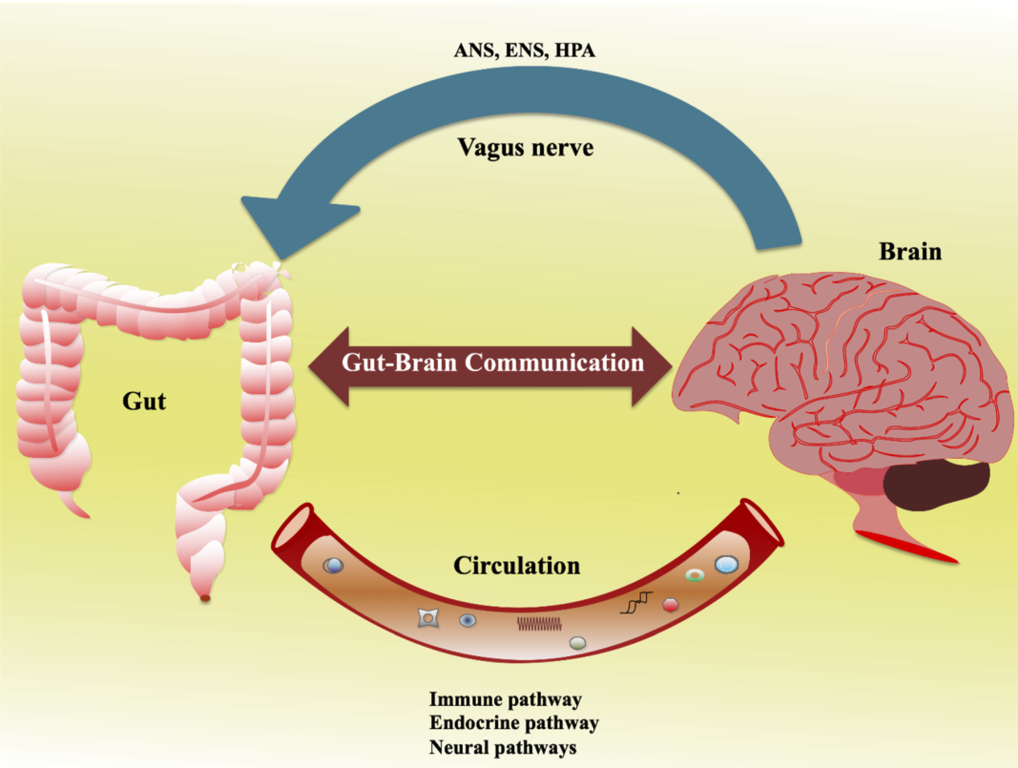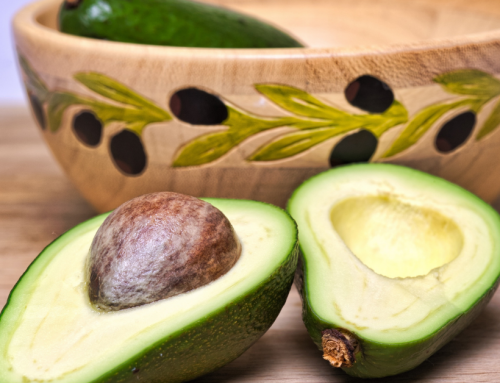How does your gut affect your mood?
Imagine you just sent a text about your mother-in-law to your mother-in-law. Eek, that didn’t feel great, did it?
The feeling that comes next is familiar, you know, that sinking feeling in your gut—the sensation that causes your heart rate to speed up and your skin to flush.
There are so many sensations tied to your gut. We have coined many sayings over our gut like; butterflies in your stomach, trust your gut, gut-wrenching, your gut feeling. Our gut determines our mood, so when it’s not doing well, you won’t be doing well either!
It is known that the microbes that live in your gut directly communicate with your brain along the gut-brain access known as the vagus nerve. This nerve travels from the bottom half of your brain down to the top portions of your small and large intestines.
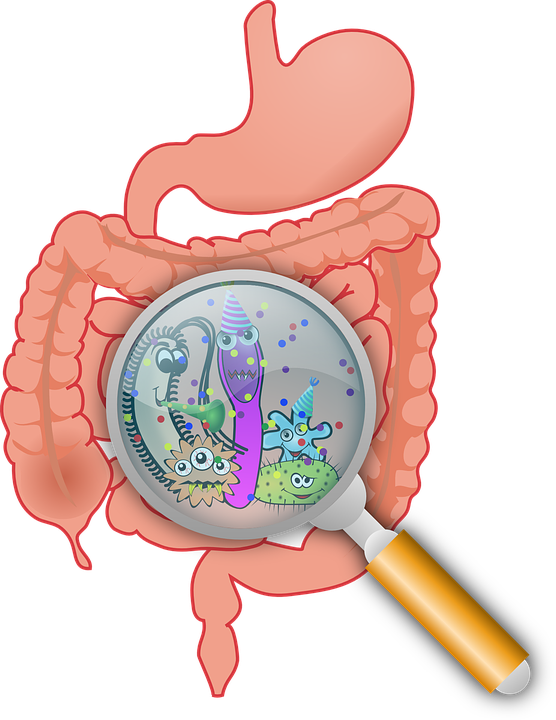
All of those microbes living in your gut have a lot to say. Recent research into the gut has proven these microbes directly influence your mood, behavior, mental health, pain tolerance, and cognitive performance. We thought our brains were in charge of our bodies, but it turns out that our gut biome is now being called our second brain.
On that note, if you are considering improving your brain health, a great place to start is to pay attention to your gut health.
Healthy Food > Healthy Gut >Healthy Brain
What you eat is one of the most important factors influencing your health. There is undoubtedly solid evidence that what we eat directly impacts our brains and bodies.
Food is broken down, transformed, then distributed to the rest of your body through your gut microbiome. The foods that provide you with the feel-good energy and sustenance needed to make it through your next 5k, your next workout, or just your day; are processed and stored by your digestive system. It decides where the nutrients you consume are needed, then what is “saved for later.”
You are what you eat; if you are not eating well or eating the right foods for a healthy brain, you will feel it.
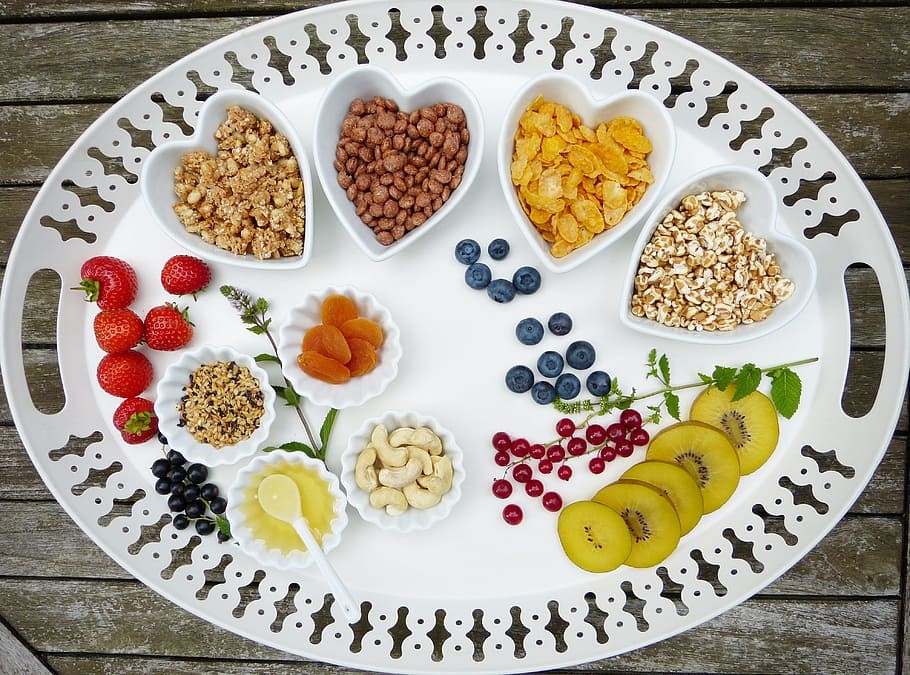
Have you ever experienced a time when you were having a conversation with a friend or family member and forgot your thought mid-sentence? Or have you ever felt foggy or moody for no apparent reason? That’s your gut talking to your brain and telling it something is out of balance.
If you have ever felt like you could not access the total capacity of your brain, it is because of that vagus nerve. Depending on what microbes are inhibiting your gut right now will determine how well your brain works. Your digestive system decides which foods are used for beneficial nutrients. It also triggers harmful metabolites (inflammatory or non-inflammatory foods). So, be careful what you eat and pay attention to how your mind and body react to different food types. For example, you usually feel bloated and uncomfortable after you eat pizza. This pizza is causing inflammation in your gut, and it will cause your brain to focus on the discomfort instead of doing more important jobs that it has.
The brain needs specific proteins, vitamins, and minerals to fire at its total capacity. The balance of complex carbohydrates, protein, and vitamins is essential for brain function and cognition.

The microbes that live in your gut produce something critical to the brain called five folic acids.
These microbes are responsible for metabolizing your food and keeping a steady flow of that folic acid to your brain. Those microbes can struggle in their job performance if not fed correctly. They hold a unique ability to create folate that impacts the neurotransmitter synthesis in your brain. To avoid the dreaded brain fog, you want to give those microbes what they need to power your brain.
Everyone is unique; it is vital to seek medical advice specific to you to have the highest success rate at modifying your microbes. The dynamic nature of the gut microbiome is why one size does not fit all when it comes to diet. I’m referring to things like food allergies and other sensitivities you may have as an individual. Figuring out your body’s food sensitivities and adjusting your diet can be a life-changer.
Probiotics and the GUT
What types of supplements you choose to incorporate in your daily routine can impact your overall health and well-being. If you take a probiotic that touts being the best probiotic for your brain, you might be on the right track. It is not a perfect science over which combination of microbes will meet the general public’s needs, but what we do know so far is that when your gut is in the right place, you are too!
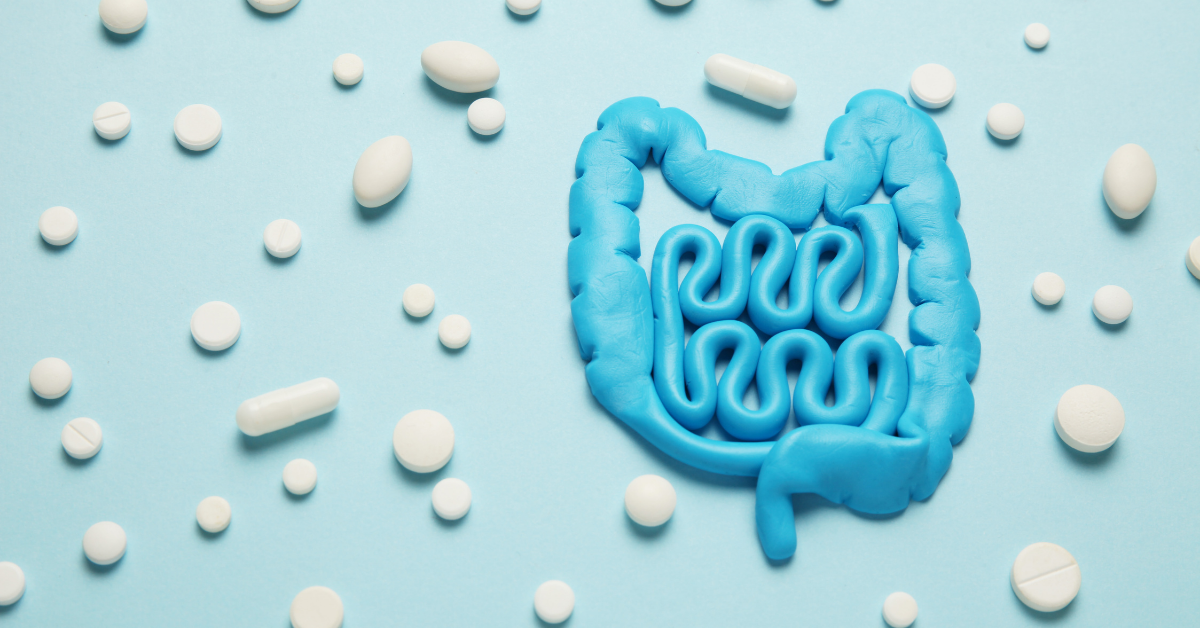
Giving yourself the ultimate gut-brain connection is complicated. Our gut biomes consist of bacteria, archaea, fungi, yeast, bacteriophages, parasites, and RNA viruses. Your gut is a complicated ecosystem with organisms that impact the function of one another.
During some research, I stumbled on some exciting information. According to PubMed:
- “Dysfunction of the microbiome-brain-gut axis has been implicated in stress-related disorders such as depression, anxiety, and irritable bowel syndrome and neurodevelopmental disorders such as autism.” Did you know standard ketogenic diets are commonly used with autistic children? Pretty cool!
- “Bacterial colonization of the gut is central to postnatal development and maturation of key systems that can influence central nervous system (CNS) programming and signaling, including the immune and endocrine systems.”
- “The development of the brain itself in the growing infant is complex influenced by the microbiome (Douglas-Escobar et al., 2013). As such, the communication of gut microbiota with the brain, through what is referred to as the microbiota-gut-brain axis, represents a new biological axis by which novel diet-based therapies can be designed to influence brain function and behavior.”
- “Intestinal bacteria play a crucial role in maintaining immune and metabolic homeostasis and protecting against pathogens. Altered gut bacterial composition (dysbiosis) has been associated with the pathogenesis of many inflammatory diseases and infections.”
- “Despite the unique enteric bacterial fingerprint of each individual, there appears to be a certain balance that confers health benefits. It is, therefore, reasonable to note that a decrease in the desirable gastrointestinal bacteria will lead to deterioration in gastrointestinal, neuroendocrine or immune relationships and ultimately disease.”
We are not working well when our guts are not functioning well. The newest revolutions in gut health are causing more and more people to be aware of what they are putting in their bodies and how it makes their brain function. The emergence of studies about the gut microbiome relative to disease, immune relationships, brain function, and behavior is incredible. Ketogenic diets are ranking very high on medical professionals’ lists of treatment options. Healthy nutritional fats and added micronutrients to balance the high fat intake have been magical for many.
What’s Out There?
If you did a search on the internet for “gut-brain connection,” you would find a plethora of blogs that lightly touch on the scientific research that has been accomplished around the gut biome with brain health. You would discover that it’s an article for the “next best gut health” supplement or powder.
Most information will discuss the vagus nerve, the neuron highway that spans your brain to the top of your large and small intestines. Did you know that trillions of microbes live in your gut, and those microbes produce a majority of your serotonin? When your gut is happy, it sends the happy hormone to your brain! Incredible! Your core is alive, and it is constantly communicating with your brain.
Another neurotransmitter produced in your gut is called GABA (gamma-aminobutyric acid). It helps control feelings of fear and anxiety.
Laboratory mice studies have shown that certain probiotics can increase GABA production, helping reduce anxiety and depression-like behavior.
Aside from reducing anxiety and depression, those millions of microbes that live in your gut produce many other chemicals that affect how your brain works.
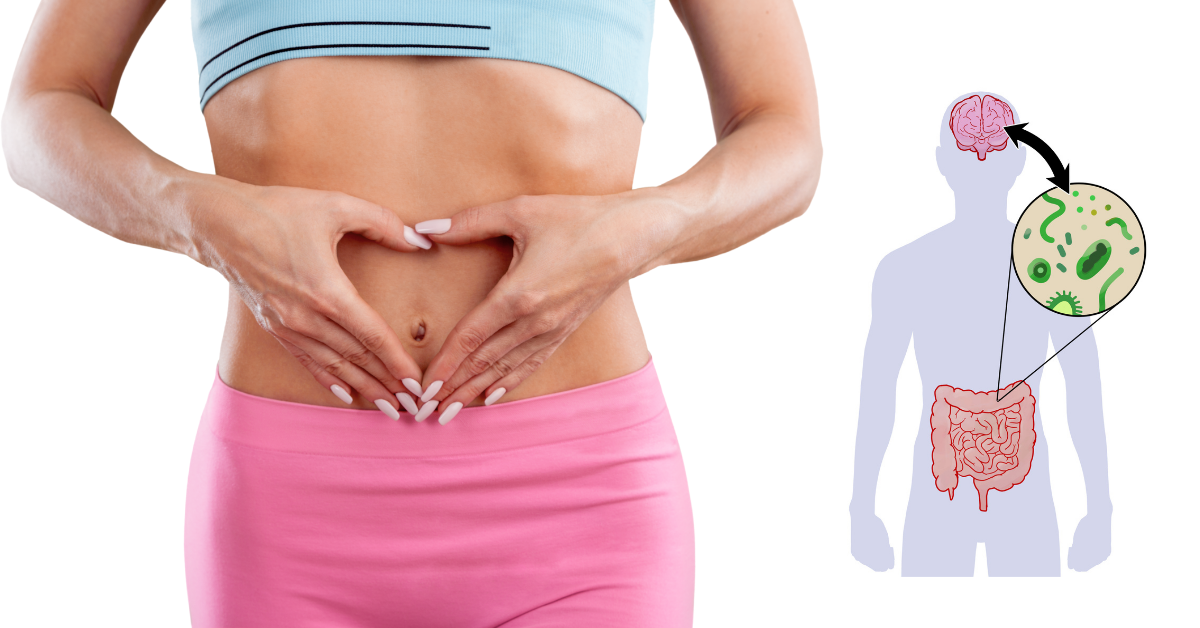
By digesting fiber, your gut microbes create short-chain fatty acids. Those short-chain fatty acids send messages to your brain that help with reducing appetite.
Gut microbes also metabolize bile acids and amino acids. The ones involved in absorbing dietary fats are bile acids. Laboratory mice studies have shown stress, and social disorders reduce the production of bile acids by gut bacteria. If you suffer from a social disorder or have a stressful living environment, you will focus on consuming foods that are easier to digest. Foods high in nutritional value; things like steamed vegetables, soft meats, poultry, nuts, and berries; once you have restored your gut, you can get back into the crunchy kale and salads.
There is so much science here to be studied; microbiomes and the cellular makeup or neurotransmitters are so interesting. But how does this tie into KETO?
How will your dietary changes on a standard ketogenic diet affect your gut-brain health? The answer is not so simple; there are many layers to peel back here. Understanding the foundation of your body, the way it works, and the direct impact food has on your mental health and abilities is a significant first step.
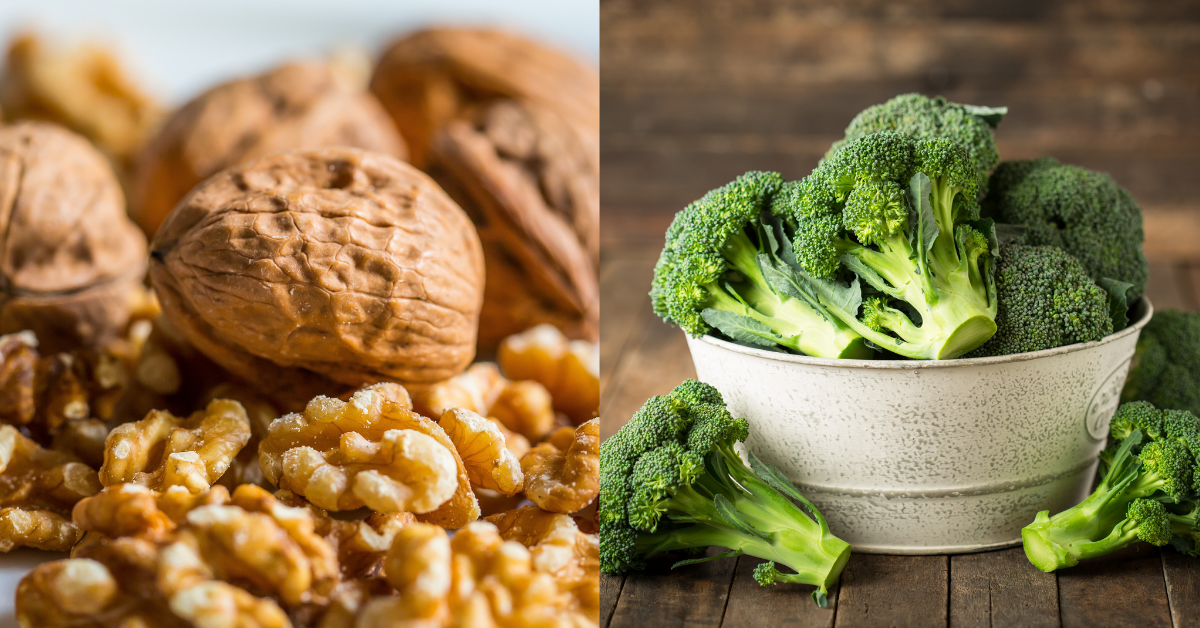
When your diet consists of whole foods that nourish you with healthy fats, proteins, and fibrous micronutrient-dense vegetables, you will see results on the scale. You will also see results in your thought process, and your mental clarity will gain momentum again.
There is a saying out there, “all disease begins in the gut,” and I couldn’t agree more! Our digestive systems absorb nutrients into the bloodstream that allow energy, growth, and cell repair. Your gut contains 70-80% of the immune system. Having most of our immune systems in our digestive system is essential because it is our body’s first encounter with the outside world. When we eat inflammatory foods or have chronic stress, it triggers an immune response causing inflammation in the intestines.
Chronic inflammation causes autoimmune diseases, causes pain, harms your brain and functionality. This focus in medicine begins in the gut. Some foods that help reduce inflammation are also keto-friendly foods.
Here are the top 5 foods that help reduce inflammation:
- Broccoli – phytonutrients in broccoli are known to fight inflammation of joints, respiratory system, colon, and more.
- Olive oil contains natural anti-inflammatory agent researchers have named oleocanthal. Consuming olive oil for breakfast has even been shown to repress in vivo expression of several pro-inflammatory genes, which research has suggested may help explain why there is a reduced risk of heart disease in Mediterranean countries where olive oil is the primary source of dietary fat—ever heard of the blue zones?
- Blueberries are rich in antioxidants known as anthocyanins; studies show blueberries help produce anti-inflammatory molecules called cytokines even if the body engages in strenuous exercise, which triggers an inflammatory state. This suggests that blueberries may offer a protective effect against inflammation when your body is in stressful situations.
- Fish help prevent cancer, arthritis, heart disease, and more; research shows that women with the highest Omega 3 fat intakes had a 44% reduced risk of dying from inflammatory illnesses than women who ate the least.
- Nuts are another natural inflammation fighter.
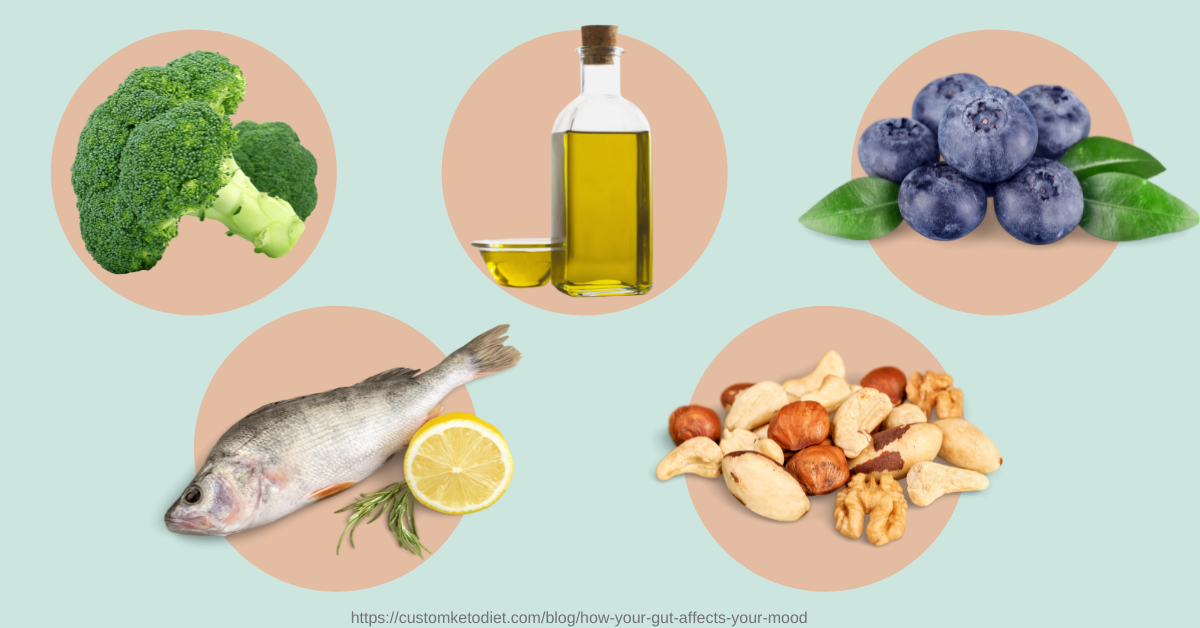
How many foods like these are you eating now that you have switched to keto? A lot more! These natural foods that grow from the ground and swim in the sea give us the most nourishment for our brain.
Being physically healthy is not just a number on a scale, a pant size, a pretty face; it’s a microbiome that is alive inside of you. To keep that biome functioning at 100 percent, you must feed it right!

